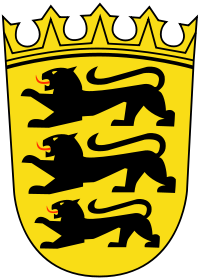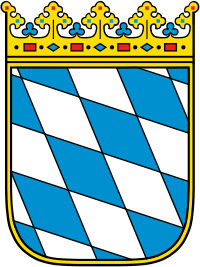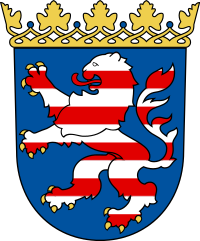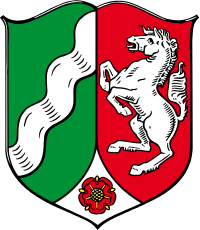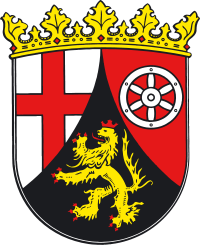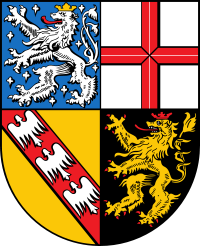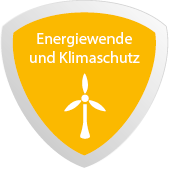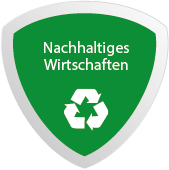Die nachfolgenden Inhalte stammen aus dem Kooperationsprogramm "INTERREG NORTH-WEST EUROPE" (genehmigt am: 18.05.2015).
Kurzbeschreibung
Implementation, adoption, demonstration and research of and adopting zero/low carbon technologies in enterprises and industrial production processes.
Förderziel
To facilitate the uptake of low carbon technologies, products, processes and services in sectors with high energy saving potential and to reduce greenhouse gas emissions.
Fördergegenstände
Demonstrations-, Modell- und Pilotvorhaben, Produktentwicklung, Markteinführung, Sachinvestitionen in Umweltschutzmaßnahmen, Strategieentwicklung, Konzept-, Teilkonzepterstellung, Vernetzung, Kooperation, Wissenstransfer
Zuwendungsempfänger
The main beneficiaries are:
- Governmental organisations (local, regional, national, international).
- Civil society stakeholders promoting energy saving measures (for example, third sector organisations such as NGOs and non-profit organisations).
- Education and knowledge institutions, including private or semi-public research organisations.
- Intermediate bodies, such as chambers of commerce, development agencies, cluster organisations, technology transfer offices.
- Environmental and energy agencies.
- Enterprises, including social enterprises.
Förderfähige Gebietskulisse
Die förderfähige Gebietskulisse in Deutschland umfasst: Saarland, Rheinland-Pfalz, Nordrhein-Westfalen, Hessen, Baden-Württemberg, Bayern (nur Oberfranken, Mittelfranken, Unterfranken, Schwaben).
Kooperationsmöglichkeiten bestehen mit folgenden Staaten: Frankreich, Luxembourg, Belgien, Niederlande, Vereinigtes Königreich, Irland, Schweiz.
Achtung: Bitte prüfen Sie im Kooperationsprogramm (KP, CP) welche Teilräume der Staaten förderfähig sind.
Art der Unterstützung
Non-repayable grant
Beschreibung
Actions are assigned to Programme-Part "Low Carbon - To facilitate the uptake of low carbon technologies, products, processes and services in sectors with high energy saving potential in order to reduce GHG-emissions in North-West Europe".
Actions may include collaboration on:
- Implementing and adopting zero/low carbon technologies in enterprises and industrial production processes; particularly those relating to energy generation and/or energy reductions/efficiency.
- Delivering and roll out of emerging energy technologies.
- Implementing transnational living labs to test and demonstrate the use of zero/low carbon solutions in real life conditions.
- Implementing of joint zero/low carbon technology demonstration schemes and facilities, including fab labs and R&D/testing facilities.
- Ensuring that new energy solutions are feasible (for example, finding ways for bioenergy production to not negatively impact on agricultural or water resources).
These actions demonstrate the environmental and economic impact associated with the use of existing zero/low carbon solutions, leading to the uptake of such solutions, particularly by private stakeholders.
Hinweis: Weitere förderrelevante Informationen zur Maßnahme finden Sie im Cooperation Programme, S. 38-39.
Zielgruppe
- Enterprises, including SMEs.
- Governmental organisations (local, regional, national, international).
- Civil society stakeholders promoting energy saving measures (for example, third sector organisations such as NGOs and non-profit organisations).
- Intermediate bodies, such as chambers of commerce, development agencies, cluster organisations, technology transfer offices.
- Environmental and energy agencies.
- Households/inhabitants.
Zentrale Zuwendungsvoraussetzungen
Wichtige weitere Informationen zu Zuwendungsvoraussetzungen, wie z. B. die Mindestanzahl an Projektpartnern, finden Sie in den zugehörigen Unterlagen.
Auswahlverfahren
Das Auswahlverfahren umfassen jeweils eine Prüfung der formalen Eignungsvoraussetzungen, dem "eligibility check", (S. 32-33 und 41-43 des Programmhandbuchs) und, bei Feststellung der Eignung, einem Assessment der Qualität des Projektes (S. 33 und 45), welches die strategische Passung zum Programm sowie die Güte des Projektes bewertet. Hinzu kommen ggf. maßnahmenspezifische Auswahlkriterien. Die endgültige Entscheidung wird durch das Monitoring Committee getroffen.
Projektauswahlkriterien
Actions carried out to fulfill this specific objective are selected on the basis of six key principles:
- Transnational additionality: Projects should have a clear focus on delivering joint transnational actions and must demonstrate the additionality of the transnational approach compared with regional, national, interregional or cross-border approaches.
- Innovation: Projects should meet the criteria of innovation as described in section 1. Innovation should lead to limited volume of GHG emissions.
- External coherence: Projects building on the efforts and outputs of other European strategies and programmes are welcome (for example, the Covenant of Mayors, the EU Roadmap for moving to a competitive low carbon economy in 2050 or the EU Climate change adaptation strategy). Transnational cooperation projects funded under the NWE Programme should explain synergies and refer to activities under these programmes, where appropriate. In addition, projects must ensure there is no duplication of existing or previous projects carried out under other European programmes or national funding.
- Territorial relevance: Projects should follow integrated approaches looking at the positive development of regions and cities and contributing to low carbon strategies.
- Sector-specific relevance: Projects promoting energy reduction should be targeted at economic sectors with high GHG emissions.
- Results-based approach: Projects should look towards the actual implementation of existing technologies, products and processes that are readily available on the market. Beneficiaries must ensure that projects’ impacts and benefits are appropriately measured.
Laufzeit
Start der Maßnahme: 01.01.2014
Ende der Maßnahme: 31.12.2023

